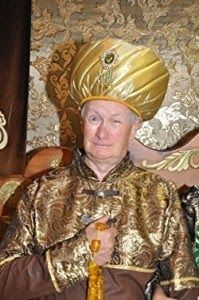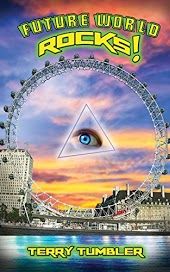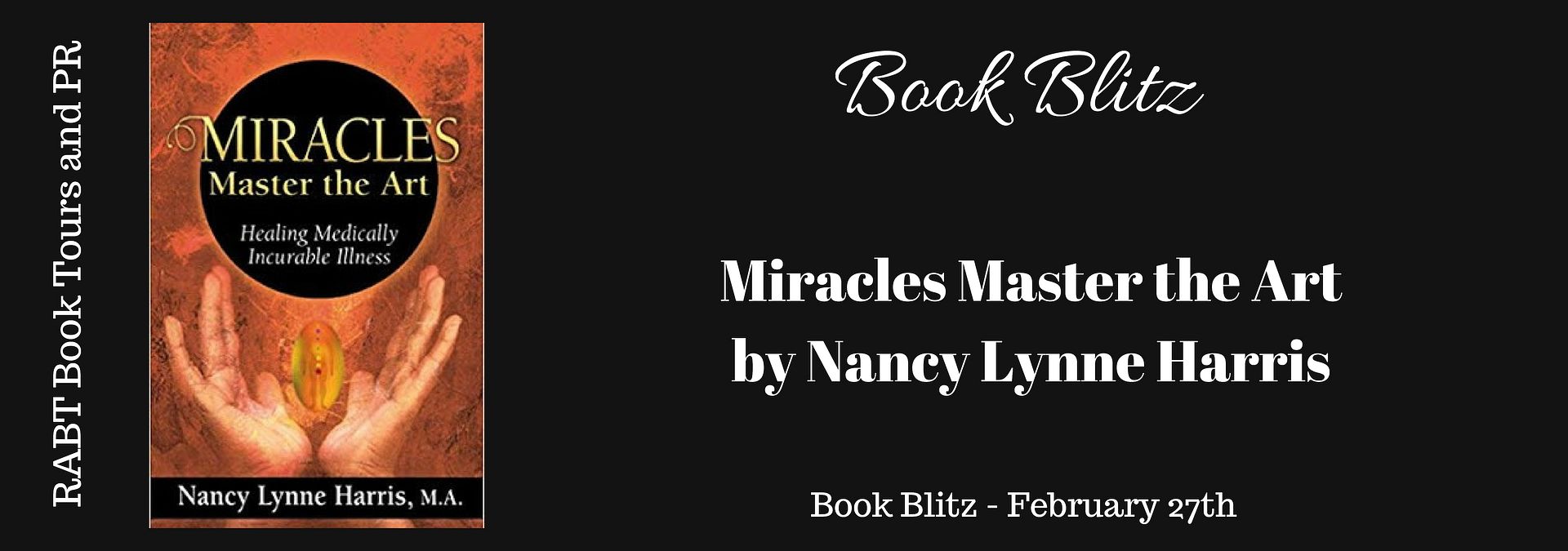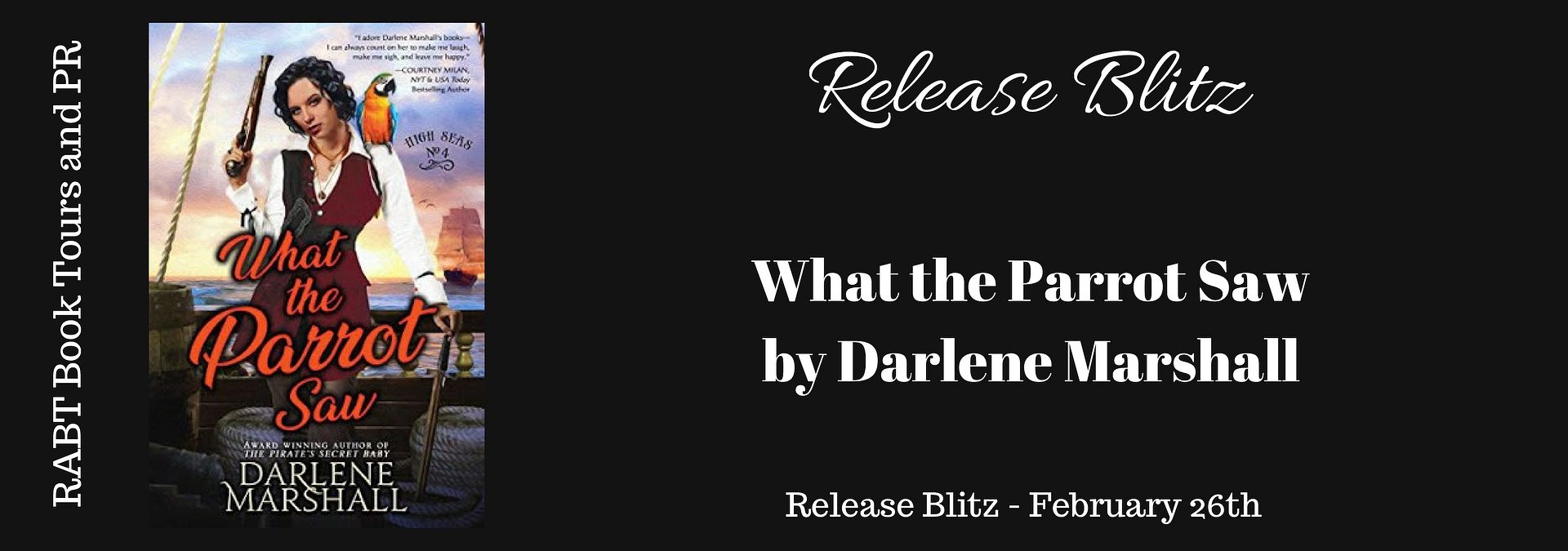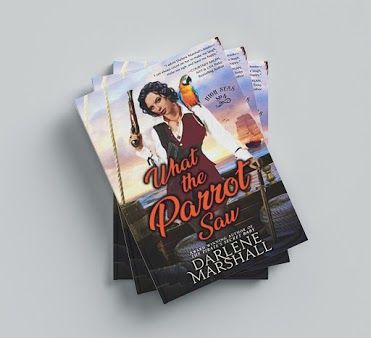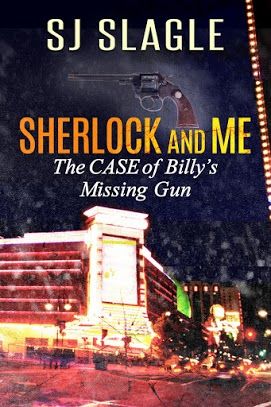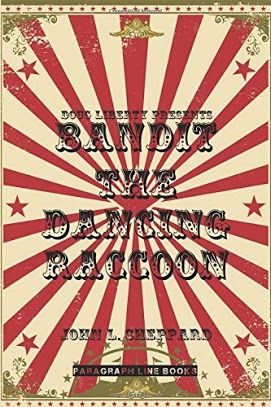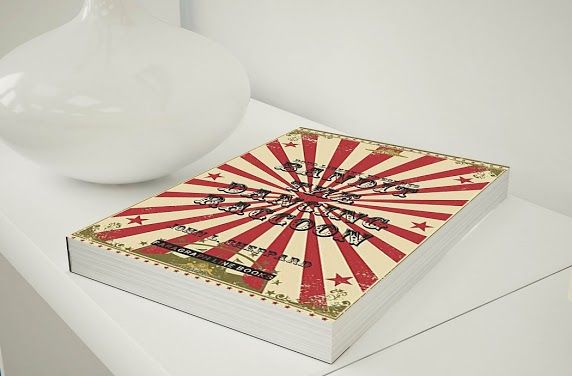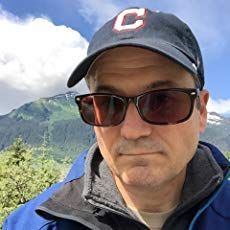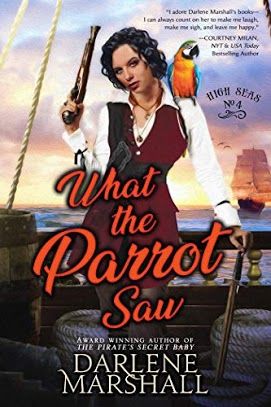
Publisher: Eve D. Ackerman
Release Date: February 26, 2019
Hijacking an Englishman from a brothel is all in a day’s work for Captain Mattie St. Armand. She needs protective coloration, and a naïve (and expendable) white man will keep the eyes of the authorities off her as she smuggles slaves from the Florida Territory to freedom in the Bahamas.
Oliver Woodruff wanted a spot of travel in the Caribbean before he settled down, but he never expected “Marauding Mattie.” He’ll help her, but he knows there’s no place in his world for the bastard daughter of a pirate and a freedwoman.
As Mattie trains him for their ruse, she comes to realize he’s a man she can turn to for support and companionship, and Oliver grows to love the commanding and daring woman who refuses to fit society’s mold… but both are sure their relationship is doomed by society’s taboos.
It will take danger and adventure (and Roscoe the parrot) to convince them that the passion between them is more than an island fantasy.
1839
“I don’t need a useless white boy. Find someone else to take him off your hands.”
“Not a boy, a man. The sort you favor, captain—golden curls, pouty mouth. He’s quite pretty, I know you’ll agree.”
Captain St. Armand stretched out long legs clad in close fitting buckskins, admiring the shine on boots freshly polished. The brothel on St. Martin offered a variety of services to its clients, from excellent meals to boot-blacking, along with the usual amenities one expected from such establishments.
“If I bring a pretty lad aboard ship, everyone will want one. I don’t share my toys.”
“You’ll take him,” the madam said. “I’m calling in my marker for the incident last year.”
“That wasn’t my fault!”
“Your ship, your crew, your fault, St. Armand.”
“Really, that man needed some excitement in his life.”
“That’s not the excitement Mr. Carlson sought at this house. He never expected a goat.”
St. Armand snickered at the memory. “I still say what you’re asking is excessive.”
“I thought you’d turn me down.” Barbara Simpson took a sip of the sherry she’d served herself. Her guest was drinking Jamaican rum, as usual. “You should know though, the young man in question is Bunny Rathbone’s relation.”
“Bunny Rathbone! How is the dear old boy?”
“He’s well, moving up in the world. He wrote me to say his cousin was touring the islands and if he came here I should treat him as an honored guest. Bunny implied Mr. Woodruff needed to experience more of life. To put it bluntly, he called the young man a ‘stuffy, boring stick.’ I invited him to the house, but first he ran into a spot of trouble and I brought him here for safekeeping.”
The doors to the parlor were open to catch the afternoon breezes rustling through the bougainvillea—a restful pause before business commenced for the evening. Comfortably rounded and middle-aged, Mrs. Simpson was a shrewd businesswoman whose motto was to give the clients what they desired—within reason—and to treat her girls as she’d wanted to be treated when she’d worked there. She’d miss Captain St. Armand, a favored customer setting sail for Nassau after a stop to provision and catch up on mail and messages from home. A packed valise waited near the door.
“The two of us have fond memories of Bunny’s visits to this house, but I’m sailing on the tide, so bring your package out here and let me see for myself.”
The madam’s bully boys were summoned and returned a short while later with their “package” struggling between them in a futile attempt at freedom. It was a young man in his mid-twenties, and, as promised, he had bright gold hair and sky-blue eyes. One of those eyes was blackened, and a bruise discolored the left side of his face. He was also gagged with his hands tied in front of him.
“As you see, I need your help taking him away, and you could use a cabin boy. You told me so yourself. Mr. Woodruff has an unfortunate habit of speaking intemperately, and there were people who took exception to what he said.”
“People?”
“Americans. Ah, I thought that would interest you.”
“I am slightly tempted,” the captain said, looking the young man over. “I may have a use for him, other than the obvious one. As always, you have an excellent eye for the goods.”
The captive made a noise muffled by his gag.
“Don’t look so horrified, Sunshine. The work’s not onerous and it comes with special benefits. If he’s annoying the Americans I’m thinking of, it makes him far more trouble than he’s worth, Barbara. I’ll pay you for the goat incident and leave him to his own devices.”
“The goat incident set me back twenty-five pounds, not to mention the free services Mr. Carlson received for his embarrassment. You owe me, but if you take Woodruff with you to Nassau we’ll call it done.”
She directed one of her men to get the captive’s gear. The captain pulled a fine cigar from the mahogany box on the table, taking time to light it and inhale before answering.
“Twenty-five pounds? I don’t care how pouty his mouth is, there’s not a man alive worth that amount.”
The bound man squawked again, jerking against the hold on his arms.
“Untie the gag, James. Maybe Woodruff can convince me of his worth.”
The gag removed, the captive worked his square jaw back and forth, glaring at them.
“I demand you release me at once! I am a British citizen and I will notify the authorities!”
St. Armand looked at Mrs. Simpson, then both laughed aloud. Even the guard chuckled.
“How do you intend to back up that demand?” St. Armand asked. “Did you happen to bring a knife with you? Or guns? Or friends with guns?”
“Friends with guns are good, Captain.”
“Indeed they are, James, but I don’t believe Woodruff has friends here, with or without guns.”
“You cannot hold me here! I did not come to the islands to end up in a bawdy house!” he protested.
“Well, that’s your problem right there, Sunshine.”
Woodruff took a deep breath, then looked at the mistress of the house.
“You are not responsible for me, Mrs. Simpson. I am not unappreciative of your protecting me by keeping me here, but I can take care of myself.”
“You don’t seem to be doing a good job of it so far.”
He glared at the sea captain.
“I do not know what your interest in my affairs is, sir, but I do not need your assistance.” He started to step forward, but James’s heavy hand on his shoulder kept him in place.
St. Armand set down the cigar.
“It’s not up to you. Hold out your hands.”
Almost reflexively the man thrust his arms out. St. Armand’s knife sliced through the knots, but when Woodruff tried to pull his arm back, the captain gripped his hand and turned it over.
“Soft and smooth as a nun’s arse. You’ve never hauled lines or done work harder than holding a pen. Don’t look so astounded. I can tell you’re a scribbler from this callus on your finger.” Cold eyes scanned him from his face down to his feet. “Soft all over. I only take crew and cargo aboard my vessel. You are worthless to me.”
The brothel owner delicately cleared her throat.
“Goats, St. Armand. Remember the goats. You don’t have to keep him forever, like a pet. Take him to Nassau or Jamaica and leave him there. You owe me, and I owe”—she paused and looked at her guest—“our mutual friend, so let’s be reasonable about this.”
Woodruff stared at the sea captain. “You are Captain St. Armand? The Captain St. Armand, of the Prodigal Son?”
Before he could answer, the brothel’s majordomo knocked at the door.
“A note arrived for the captain, ma’am, and it’s marked urgent.”
St. Armand read the rumpled paper, a frown creasing the lean face.
“There’s no time for further debate. I’ll dispose of this person for you, Barbara, and make sure the body’s well hidden.”
“What? You can’t kill me!”
They ignored such a patently ridiculous statement, but Mrs. Simpson shook her head.
“I must insist.”
“Oh, very well. Woodruff, you’re coming with me. Your only choice is whether it’s bound and across your saddle, or riding.”
He appeared ready to argue, but after one look at St. Armand’s set face said, “I’ll ride.”
“You’ll find a way to turn a profit on him,” Mrs. Simpson said, rising to her feet as well, “I know you.”
“There is that,” St. Armand said cheerfully. “He could have an unfortunate and fatal accident aboard ship, and I know a surgeon in Nassau who pays well for fresh cadavers. Don’t look so pasty-faced, boy. If you follow orders, you should survive long enough to keep scribbling. The first order is this… The captain is always right, and when I give an order, I expect it to be obeyed. Say ‘Aye, Captain’ if you understand.”
Woodruff looked at him and swallowed.
“Aye, Captain.”
About the Author

Darlene Marshall is the author of award-winning historical romance featuring pirates, privateers, smugglers, and the occasional possum. She loves working at a job where business attire is shorts and a shirt festooned with pink flamingos and palm trees. Marshall lives in North Central Florida, a convenient location for putting the convertible top down and researching sites of great historical significance, which also happen to be at the beach and serve mojitos.
Marshall is a graduate of the University of Florida and worked as a broadcast and print journalist, news anchor, radio station owner, obituary writer and a few other odd jobs. She's section leader for Erotic Writing at TheLitForum.com.
Her books have been published in English, German and Estonian. Awards include the New England Chapter RWA (Romance Writers of America) Readers' Choice Award and Colorado Romance Writers Award of Excellence for The Pirate's Secret Baby; the Denver RWA Aspen Gold award (Castaway Dreams); the First Coast Romance Writers National Excellence in Romance Fiction Award (The Bride and the Buccaneer), and two EPIC awards.
Represented by Barbara Collins Rosenberg of the Rosenberg Group.

